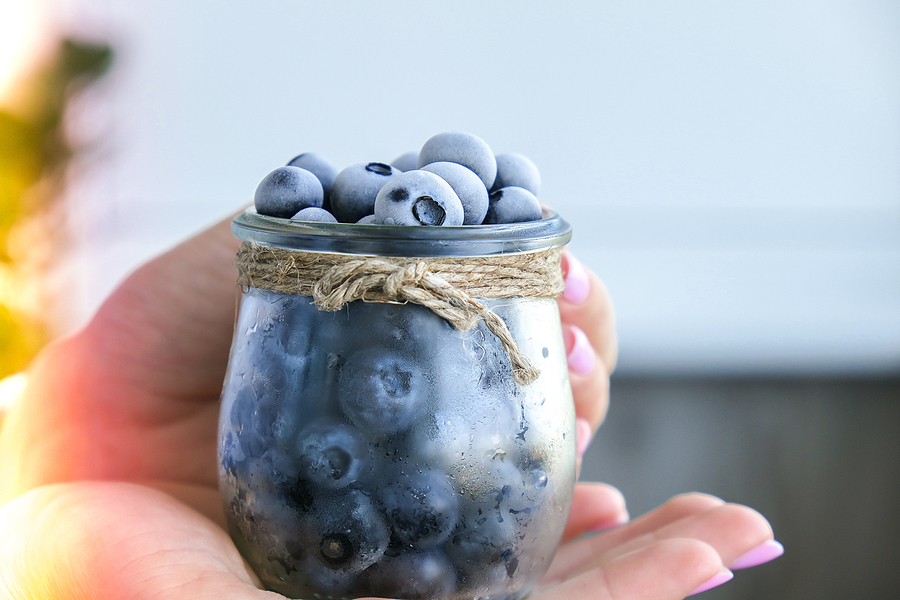The first time I see a woman at my clinic, I spend ample time getting to know her, her habits and daily routines. One thing I always ask is whether she is taking a daily multivitamin and mineral complex. That’s because there are so many micronutrients that can make a huge difference in how a woman feels.
Many of these women answer yes, they take daily multivitamins. But when I ask if they know what, exactly, is in it the answer is typically no. Most of these women assume that if they buy a multivitamin, it will have what they need. Unfortunately, unless it’s a high quality formula from a reputable distributor, that’s not always the case.
It’s even more complicated when you add in the minerals that should be, but aren’t always, included. While your body can manufacture many vitamins, minerals come from the earth and can only be obtained through food or supplements. That’s one of the reasons iodizing salt became so important decades ago; far too many people had iodine deficiencies and just weren’t getting enough in their typical diet.
Let’s examine what minerals do for your health, and then I’ll discuss the most important minerals your body needs and the foods that provide them.
How are minerals and vitamins different?
Vitamins and minerals are each considered micronutrients, but they are quite different in some fundamental ways. As I said above, your body can produce vitamins. That’s because they are organic, meaning they’re made by living things. Minerals, on the other hand, are inorganic. They come from soil and rock.
Vitamins are fragile, and can break down when exposed to heat, acid, or air. They also break down as they age. Minerals are far more hardy. Their chemical form is simpler than vitamins and easily maintained, despite exposure to those same elements.
Minerals in soil and water are transferred to plants, fish, animals and the water you drink. As you consume these items, your body gets the minerals it needs. Vitamins aren’t as easily obtained since cooking, storage methods and exposure to air can all impact their chemical makeup.
Your body needs all identified vitamins for good health. Only some minerals are essential. These micronutrients also interact with each other, which is sometimes great, but sometimes not. When vitamin D grabs calcium from food instead of your bones, that’s a good thing.
But when vitamin c doesn’t allow your body to use copper as it should, it’s not so great. And minerals can interact with each other, such as too much manganese making iron deficiency worse.
Why are minerals important?
When minerals and vitamins work together, they’re responsible for myriad roles in body functioning. They turn food into energy, repair cell damage, strengthen bones, heal wounds and boost immune function, among other things.
It can be tough to keep track of all the things these micronutrients (so called because you really only need tiny amounts of each to function well) have a hand in. But the really important thing to know is that although only small amounts are necessary, if you don’t get these big problems can ensue.
Because your body can’t make them, it’s especially important to eat foods rich in the essential minerals or take high-quality supplements to maintain good health. But it’s equally important to use caution and work with a qualified practitioner to understand the correct amounts you need. Too much can also wreak havoc on your health!
Deficiencies in various micronutrients are widespread in the US, particularly among women. Elderly individuals are also at greater risk for deficiencies, as are athletes (whose bodies demand more nutrients), chronic dieters or those with eating disorders, and people in poverty who may not be able to access fresh, nutritiously dense foods.
Now that we’ve talked about what minerals are and why your body needs them, let’s look at the most important minerals required to maintain great health.
Top 8 Minerals for Optimal Health
Minerals are categorized into two groups: macrominerals and microminerals.
Just as macronutrients are needed in greater amounts than micronutrients, higher levels of macrominerals are necessary for proper body function. For microminerals, the amounts needed are miniscule, but no less important. It is essential to pay close attention to the amount of these trace minerals you are getting, since toxicity can happen quickly if you get too much.
Below is information on some of the most important minerals, their role in the body, and some dietary suggestions to help you fend off deficiencies.
Caution is necessary, particularly if using supplements to get these nutrients. They can interact with one another, impacting levels both positively and negatively. I always recommend talking with a qualified practitioner about your unique needs.
Calcium
Every woman I talk to knows that calcium is important, but they aren’t always sure why. Our bodies require a lot of calcium to keep bones and teeth strong.
Calcium also impacts blood clotting, muscle contraction, the activation of specific enzymes, and nerve signaling. Calcium manages the use of nutrients and impacts proper absorption. So without the calcium you need, you may end up malnourished no matter how healthy you eat!
Calcium deficiency is nothing to mess around with. Some of the serious conditions that can result include brittle bones, osteoporosis, problems with blood clotting, and cardiovascular issues. Some signs of deficiency are muscle cramps, fatigue, brittle nails, memory loss, depression, and tingling in the hands and feet.
Nearly half of the population in the US doesn’t have the proper diet to get the calcium they need. When you think of calcium, you likely think of milk and other dairy products. These are an amazing source of calcium if you can tolerate dairy.
Unfortunately, many people cannot. Other great sources to include in your diet are chia, celery or sesame seeds; green leafy vegetables; legumes; canned sardines and salmon; certain types of fish; almonds and other nuts and nut butters; Chinese cabbage; and rhubarb. Some foods, like breakfast cereal, are fortified with calcium as well.
Sodium chloride (salt)
You often hear about the dangers of too much salt. That’s because reaching for the salt shaker is almost a reflex for many people, so overuse is common. But salt is an important mineral to help your body maintain typical chemical reactions in the body. Sodium chloride helps regulate hydration, blood volume and blood pressure as well.
You don’t have to add salt to your food to get what you need. Though processed foods contain high levels of sodium, they are NOT where we want to get this mineral from either. Natural sources of sodium chloride include celery, kale, lentils, egg yolks, seaweed, barley, strawberries and pure sea salt.
Potassium
Potassium balances the actions of sodium, and has a big impact on kidney, nerve, muscle and heart cell functioning. Typically, a medical condition will be the reason for a potassium deficiency. Excessive use of diuretics can also lead to a potassium deficiency. Low potassium can cause cardiac arrhythmia and sometimes even cardiac arrest.
You probably know that bananas are high in potassium. Some other great natural sources include citrus fruit, almonds, green vegetables, cantaloupe, sweet potato, carrots, dates, raisins, squash, fish and potato skins.
Magnesium
Magnesium has many important roles in the body. It’s critical to the immune system, heart, muscles, bones and energy production. There have been some connections made in research pointing to a link between low magnesium and certain diseases, such as diabetes, hypertension, osteoporosis, heart disease and migraines.
Magnesium can also calm the nervous system and help reduce stress levels, promote quality sleep, balance blood sugar levels, and much more.
Magnesium deficiency is common, partly due to the standard American diet (SAD). To boost magnesium, eat plenty of green, leafy vegetables, nuts, whole grains, pumpkin, artichoke, soybeans, beans, tofu and dark chocolate.
Iron
Iron is essential in getting oxygen where it’s needed throughout the body. It helps form red blood cells, hemoglobin and blood vessels.
Iron helps to form hemoglobin, red blood cells, and blood vessels. It’s essential for helping transport oxygen throughout the body. Dietary iron comes in two forms: heme iron (from animal foods) and non-heme (from plant foods). Consume iron with vitamin C to enhance absorption.
Low iron levels are known as anemia. Iron deficiency, which is the most common mineral deficiency, can lead to a weakened immune system, and impair the flow of blood. Signs that you may have an iron deficiency include fatigue, dizziness, headaches, cold hands or feet, and a pale appearance.
Sometimes, iron is low due to inadequate dietary intake. But conditions like puberty, heavy blood flow during menstruation, or being pregnant can increase risk of deficiency. Vegetarians and vegans are at higher risk as well.
Too much iron is associated with increased risk of cancer, cardiovascular disease, and neurodegenerative diseases, so it’s crucial to pay attention to how much you are taking in. Iron supplements should only be used under the careful supervision of a medical professional.
Natural sources of iron are clams, oysters, red meat, organ meats, dark poultry meat, lima and kidney beans, molasses, raisins, brown rice, green leafy vegetables, seaweed, pumpkin seeds, and fish.
Selenium
Selenium is a trace mineral, so you don’t need much. But if you don’t have enough, your thyroid function will suffer, since this mineral is a primary component of the molecules called seleno-proteins that are necessary for your body to manufacture and use thyroid hormones. Selenium has known antioxidant properties and current research is examining the role of selenium on immune function.
If selenium is low, you may experience muscle pain and weakness, discolored hair or skin, and see whitening in the beds of your fingernails.
Related article: Selenium and Thyroid Connection – What is it and How Can it Help My Thyroid?
Dietary sources of selenium include milk, seafood, poultry, whole grains, eggs and brazil nuts (eat these sparingly, two a day)- they can quickly provide too much selenium).
Zinc
Zinc is important because of its antioxidant properties, as well as the role it plays in immune function, neurological function, growth and development, and reproduction. Zinc helps the body use macronutrients like carbs, protein and fat for energy. Stress seems to lower zinc – and who isn’t under a lot of stress, especially these days?
Signs of zinc deficiency impaired growth, diminished immunity, skeletal abnormalities, difficulty with wound healing, night blindness and hair loss. Vegans, the elderly, and alcoholics are at particular risk of deficiency.
Good dietary sources of zinc include organ meats, grass fed beef, oysters, pumpkin seeds, sesame seeds, peas, whole grains, mushrooms, spinach, sardines, and tempeh. The typical American diet doesn’t include a lot of these foods, and your body doesn’t store zinc, so making sure your multivitamin includes this mineral is important.
Iodine
Iodine is critical for proper thyroid function. When the body is low in iodine, production of the thyroid hormones T3 and T4 slows down, causing symptoms such as weight gain and sluggishness.
Iodine and selenium work hand in hand, so if selenium is also low, it’s an even bigger problem. Iodine deficiency negatively impacts growth and neurological development as well.
Iodine is naturally occurring in sea and soil. Good dietary sources of iodine include seaweed, shellfish, dairy products such as milk, cheese, and yogurt; eggs, cranberries and strawberries. Iodized salt is one of the easiest ways to add iodine to your diet.
Eat your way to great health
Although I recommend that all women take a high quality multivitamin daily, getting enough of these important minerals from food can be achieved if you’re intentional about what you’re putting in your body. This is especially true for trace minerals, which you only need in tiny amounts.
You may have noticed the overlap in foods that contain some of the most important minerals. With a few deliberate choices (like plenty of green vegetables, for instance), you can give your body the nutrients it needs!








